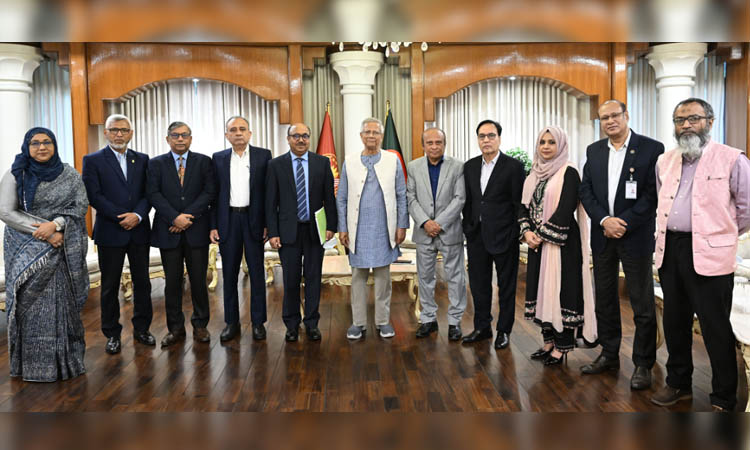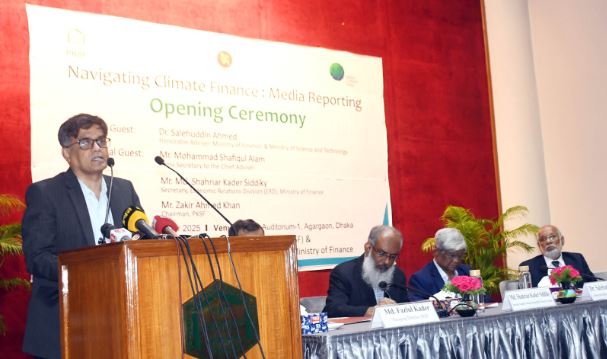Moon Desk: Chief Adviser’s Press Secretary Shafiqul Alam on Monday called upon the journalists to highlight Bangladesh’s homegrown climate news at global forums to secure necessary funds and global support.
“Although the adverse impacts of climate change are hitting every sector of Bangladesh, the country’s own stories are not reaching the international stage adequately, making it difficult to secure necessary funds and global support. The media must play a leading role in building strong arguments for climate finance,” he said.
The press secretary said this while speaking at the inaugural session of a three-day training workshop titled “Navigating Climate Finance: Media Reporting” jointly organised by Palli Karma-Sahayak Foundation (PKSF) and the Economic Relations Division (ERD) at the PKSF auditorium in the city.
Finance Adviser Dr Salehuddin Ahmed joined the event as the chief guest while PKSF Chairman Zakir Ahmed Khan presided over the session. ERD Secretary Md Shahriar Kader Siddiky also spoke at the event, among others.
Noting that Bangladesh is one of the most climate-vulnerable countries, Shafiqul Alam said, “Our 18 crore people are directly at risk of climate change”.
“Cyclones, floods, tidal surges and saline intrusions are constantly increasing. But, our own stories are not being projected in the global arena. Though, foreign media occasionally send teams to report in this country, homegrown stories could not secure a place in the global arena,” he added.
Referring to local cases, the press secretary said the water crisis in Sylhet, salinity intrusion in the southwest, and water-logging in Bhobodoho are direct consequences of climate change.
“But even though these incidents get seasonal coverage in the media, they cannot secure a place in the international discussion,” Shafiqul Alam noted.
“Each year, several lakhs of people remain stranded in Bhabodoho. But once the season ends, this issue disappears from news coverage, even though it is a big example of climate change. There are thousands of stories like this that are left out of our news coverage,” he said.
The press secretary said that the impact of climate change is not limited only to natural disasters, it is also linked to health, economy and social instability.
He cited the spread of dengue, maternal health crises and changes in fertility rates as examples.
“In every aspect of our lives- social tension, health risks or political instability- climate change has an impact. But we can’t reach these stories global arena. As a result, we fail to build strong cases internationally and miss out on the funding we need,” Shafiqul Alam observed.
Addressing the journalists, the press secretary said climate journalism is now a crucial field.
Referring to internationally renowned journalists Bill McKibben and Elizabeth Kolbert, he urged Bangladeshi journalists to pursue in-depth, investigative reporting of similar caliber.








